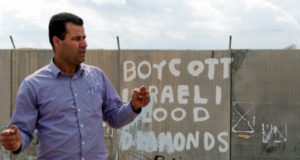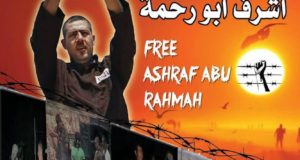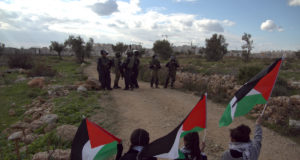By Akiva Eldar, Ha’aretz Correspondent
The Israel Police’s National Fraud Squad has opened a criminal investigation into the illegal construction of hundreds of housing units in the Matityahu East neighborhood of the Modi’in Ilit ultra-Orthodox settlement. A statement to this effect was submitted on Tuesday to the High Court of Justice in response to an injunction issued at the request of the Peace Now movement.
The police investigation is focusing on Modi’in Ilit council head Yaakov Gutterman, other senior council officials, entrepreneurs and large construction companies, Jewish real estate dealers who acquired privately owned Palestinian land, lawyers and settler organizations involved in “land redemption.”
Hundreds of millions of dollars are believed to have changed hands in the affair.
According to police suspicions, a lawyer at one of the settler organizations purchased the land in question based on an affidavit submitted by the mukhtar of Bil’in, who claimed that because of the security situation, he was unable to get to the village and collect the signatures of the landowners.
During the course of Tuesday’s legal debate, the High Court was told of a land-laundering system that allowed the real-estate dealers and settler organizations to convert private land – purchased sometimes through dubious means – into “state land.”
Ahead of the construction of the separation fence in the area, the land was “returned” to the buyers so that they could establish facts on the ground and press the Defense Ministry into moving the route of the fence to the east of the new neighborhood.
Peace Now attorney Michael Sfarad, who is also representing residents of Bil’in on whose land Matityahu East is being built, has provided the state with documents allegedly indicating that Gutterman and other council officials had a hand in illegal construction on an unprecedented scale. The documents include a letter in which the council’s legal advisor warns the council engineer that entrepreneurs are constructing “entire buildings without permits, with your full knowledge and in total disregard for planning process and the law.”
Furthermore, a report sent to the Interior Ministry by the council’s comptroller notes that construction in the new project is going ahead contrary to the state’s approved urban master plan.
Following a Haaretz report on the affair early in the year, and in keeping with a directive from the State Attorney’s Office, the Civil Administration in the West Bank took over law enforcement duties at the new building sites in the settlement, issuing injunctions to cease all the construction work and sending out inspectors to ensure that these were upheld. At the same time, the head of Peace Now’s Settlement Watch unit, Dror Etkes, submitted complaints to the police against all those involved in the affair.
At Tuesday’s High Court debate, the state said it had no objection to extending the construction ban, but said it was opposed to razing the illegal structures that had already been completed or were near completion. The state also said it saw no cause to evict individuals who had already moved into their apartments.
 International Solidarity Movement Nonviolence. Justice. Freedom.
International Solidarity Movement Nonviolence. Justice. Freedom.


